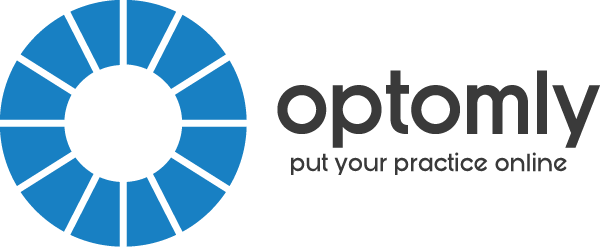Optometry Social Media Marketing
Do you want to find out what patients are searching for online? Would you like to know what they’re really trying to find?
You may have heard of Pinterest, or have a Pinterest profile already. Like Facebook, Pinterest has posts, called Pins, that contain images. Pins can be shared with friends. However, Pinterest makes it very easy for users to follow specific topics, and save interesting Pins to their own Board for later.
As at November 2014, Pinterest had over 340,000 users in Australia, according to Social Media News.
In Australia, 17% of people who use social networking maintain a Pinterest Profile, according to Sensis Social Media Report May 2015.
In the Report, Pinterest had a longer average session time (17.9 mins), compared to Facebook (16.64 mins). That is, the time taken in one occaison of use.
So, how is searching on Pinterest different from Google?
Pinterest is becoming a search engine on its own. Users are starting to enter search phrases into it, as an alternative to Google. One of the reasons for this is that Pinterest users follow friends or boards for inspiration.
For example, a Pinterest user may see a cool frame, coloured contact lens, and do a search on their smartphone. In this way, Pinterest is more social than Google.
Although Google Images does show photos, Pinterest makes it easy to see designs from people that you already know and trust (or follow). Pinterest also makes it easy to follow boards of similar designs (e.g. 55 and over). This way, Pinterest Users keep up with new designs and trends. And it’s easy to pin them to save for later. That way, Pinterest users can easily show you their Pins, including which eyewear models they like.
How Optometrists can benefit from Pinterest?
Lets do a bit of research about pinterest. Follow me through the background, method, results, conclusion. Isn’t this the Optometry way?
Background:
My goal was to identify the keywords that users were typing into Pinterest. More importantly, I wanted to look at the pattern of keywords, and infer their intent behind it. That is, what were they really looking for?
I took inspiration from a recent article from Search Engine Land, titled “Using Pinterest for Keyword Research”
Method:
I chose twelve optometry-related keywords to search on Pinterest. These included:
* Optometrist
* Glasses
* Spectacles
* Eyewear
* Sunglasses
* Prescription Sunglasses
* Lenses
* Contacts
* Contact Lenses
* Eyes
* Eye Examination
* Eyecare
Search criteria:
* Worldwide Pinterest searches
* Organised and selected keywords into categories, and similar terms
* Results are on the most commonly used keywords (and the ideas behind them)
From this list, there were 747 keywords that Pinterest Users typed into Pinterest.
Results:
- Pinterest is used for inspiration for general ideas, trends, styles, fashion. The same goes for eyewear. It is used for inspiration for different genders (mainly women), styles/influences (e.g. celebrity, hipster, retro, vintage), emotions (e.g. nerdy, cool, sexy, beautiful, fun, funny, unique). It is also used to match accessories (e.g. outfit, hair, jewellery).
- Searches for coloured contacts are featured heavily, from example colours (e.g. blue, green) to crazy lenses (mainly Halloween or movies), from insertion/removal, to lens care tips and problems.
- Pinterest is used for learning: a key search term is about Pinterest users looking for information about the best frame shape for them. They also search for blog articles and posts about spectacles, contact lenses and eyecare tips.
- Pinterest is also used to lookup specific frame brands. That is Pinterest users have already done a search for styles, found a brand, and are closer to making a purchase. The most popular brand in this search was Ray Ban. Other brands include: Tom Ford, Prada, Oakley, Dolce & Gabbana, Vogue, Dior, Chanel, Gucci, Guess, Celine, Persol, Michael Kors, Kate Spade, Marc Jacobs, Burberry, Tiffany, Miu Miu, Versace, Armani, Fendi, Chloe, Coach, Maui and Theo.
- Contact lens brands had fewer keywords than frames. However, they included, Freshlook, Acuvue and Hello Kitty.
- Pinterest Users also search for information about eyecare for children, including babies, preschool and upwards.
- In describing Optometry Practices, a variety of words were used, including clinic, office, shop, store, business, outlets. Interestingly, Pinterest users also searched for optometrist websites and Youtube pages.
Conclusion (Why this matters to you!)
- Be a source of knowledge on Pinterest: every day, we give patients inspiration for current trends and styles of eyewear. We also guide them to find the right shape that suits them best. Patients are searching for the knowledge that you and your colleagues have. Through Pinterest, you can reach a wider area, and inspire patients and their friends. In this way, Pinterest works even when you don’t.
- Help patients find your boards Use the keywords above on all of your Pinterest Boards and Pins. This increases the chances that patients will find your board.
- Use these keywords on your practice website If you want to rank highly on Google, consider that Google wants most of all what gives answers to searchers. That is, if people find what they’re looking for, they are more likely to come back to Google next time. Create blog articles or Youtube videos about “how to find the right frame shape for you”. Then post it on your site, and promote it through social media. You benefit through increased social traffic and increased organic ranking on Google
Use Pinterest to find out what patients are really looking for. Try a keyword search for yourself. Use the nuggets of insight to your advantage, for your practice website and social media pages.

